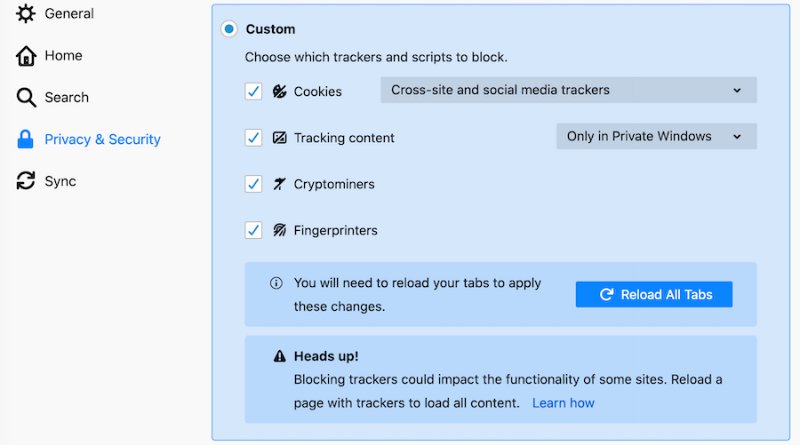The term ‘online privacy’ refers to the amount of your personal, financial and browsing information which remains private during your online activity as well as from one session to the next. A lot of internet users do not realize that websites collect your data and accumulate it over time. These same people that spend a lot of time browsing the internet, are not taking their privacy seriously.
After all, propaganda such as:
- “Google is your friend”,
- “If you’ve done nothing wrong, you have nothing to worry about”,
- “Cookies set by websites are harmless”,
- “Google Chrome browser is secure”,
- “Google email protects your data”,
Ask around and you’ll most likely find lots of internet users that agree with those sayings. Mostly because they have heard them hundreds of times said by “authoritative” people.
Use a secure browsers
A secure browser that keeps your personal information private is your number one line of defense. Most browsers claim to be secure regarding vulnerabilities and hacking attempts, but that does not mean that they keep your information private. Beware: most browsers are no more that data collection tools working for the thousands of competing advertisers in order to target ads to you. The better they can target ads, the more money they can charge for each ad. They are not your friends – they are not working for you. All the experts say the Google Chrome is the biggest collection tool online and yet it’s the most popular. So far, the browsers are winning the privacy war.
Here is just some of the personal data that browser might collect/use:
- Your browsing history: all the sites you visit,
- Your logins: usernames and passwords,
- Cookies (trackers): these are placed on your computer by the sites you visit,
- Possibly auto-fill information: names, addresses, phone numbers, etc.
By the way, if you think that using the ‘private window’ or ‘incognito’ browsing mode will protect you, sorry that’s just a myth. Just search this phrase and read the headlines: “Google spying on Incognito browsing”.
The most secure browser available is Firefox. Even right out of the box, Firefox does a decent job, but there are some important tweaks that every user can easily make to increase their privacy protection. What makes Firefox the ‘most secure”? The main feature is that the Firefox code is open source that has been independently audited. The other browsers keep their code secret – they would be out of business if everyone could see what they’re up to.
Of course, the best practice would be to block as much as possible. To get started, open the Firefox Menu and choose Options, Privacy. Where you see Enhanced Tracking Protection, choose Custom and be sure everything is checked.

The are more tweaks that you can read on the Mozilla site. https://www.mozilla.org/en-US/privacy/firefox/
Search Engines
Maybe the quickest way to increase your online privacy is to use a secure search engine that keeps your personal information private. Here are the top three secure browsers according to industry experts:
- DuckDuckGo,
- Searx,
- Disconnect Search.
Our favorite is duckduckgo. Here’s what they say about their privacy policy:
“…We don’t track you at all, regardless what browsing mode you are in. Each time you search on DuckDuckGo, it’s as if you’ve never been there before.”
Social Media
Facebook, Twitter, and Instagram are the main culprits when it comes to collecting and saving your personal information – and then using that information to track you and selling that information to advertisers. Keep in mind that your government can get all that information from those sites with just a simple request. If someone you know becomes a suspect in any crime, you also might come under scrutiny.
The number one rule with social sites is: be paranoid. Never use you real last name on those sites. If you already did, change it now. After all, if someone is out to get you and they find your last name on Facebook, their job is half done. Now they comment on your Facebook Profile in order to lure you to their website. Once you visit their site, they have your IP address which reveals your location. Then they just look you up in the phone book and they have your street address. Getting nervous yet? You should be!
Summary
If you follow the advice on this page, your browsing will be more secure. Your personal information will be kept more private. But there’s one thing none of the above can do: they can not hide your IP address. Hiding, or covering up, your IP address is the ultimate in privacy online. In that case, if someone has your last name from Facebook, it does them no good because they will not have your IP address and location. Therefore, every user should sign up with a Virtual Private Server

